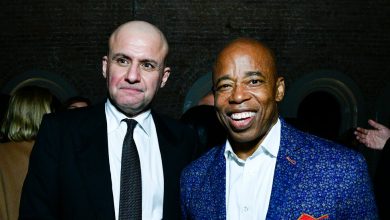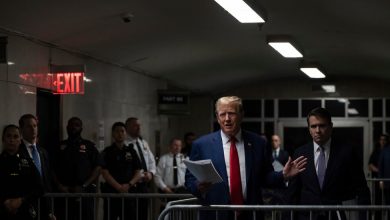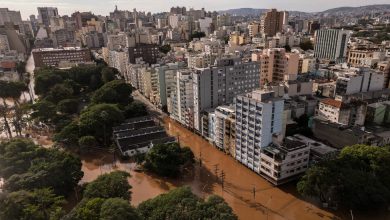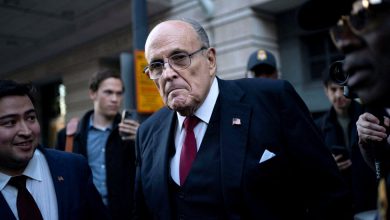What to Know About the Presidential Election in Liberia

A former soccer superstar won the presidential election in the West African nation of Liberia in 2017 by promising to fix the country’s economy, build more roads and address endemic graft.
But six years later, the aura that surrounds President George Weah has faded, a result of criticism that he has spent too much time abroad and failed to sufficiently tackle corruption.
Now, as voters in Liberia head to the polls on Tuesday in an election to determine whether to re-elect him or, as one of his main opponents said, give him a red card, Mr. Weah’s prospects are uncertain.
The presidential election in the coastal country of 5.5 million is another test for the future of representative rule in West Africa. Mutinous soldiers have seized power in several countries in the region in recent years, presidents have clung to power in contravention of their countries’ constitutions, and elections elsewhere have been tainted by irregularities.
Last month, Secretary of State Antony J. Blinken announced visa restrictions for people “undermining democracy in Liberia” by encouraging violence or seeking to rig the election. Mr. Blinken didn’t specify who was affected by the restrictions, or how many people were targeted.
Three people died in clashes during the campaign, and at Mr. Weah’s final rally on Sunday on the outskirts of the capital, Monrovia, the police dispersed crowds with tear gas as supporters and opposition members threw stones at each other.
About 2.5 million people are eligible to vote. Preliminary tallies are expected within days, and official results later this month. If no candidate secures more than 50 percent of the votes, a runoff will take place in November.
Who is George Weah?
Mr. Weah, 57, who grew up in the slums of Monrovia, ran in 2017, leveraging his status as a former soccer star who played in some for Europe’s top clubs. He remains the only African player to receive the Ballon d’Or, an award for the world’s top player soccer player, which he won in 1995.
How has he done in power?
At a bustling mobile phone repair shop in downtown Monrovia on Monday, voters debated whether Mr. Weah deserved a second term.
“He’s doing well: he’s bringing development, he’s building roads, he pays exam fees for people going to school,” said Sandra Giddings, who sells cleaning products to offices, listing the main achievements cited by Mr. Weah’s camp.
Sitting next to her while waiting for his phone to be repaired, Abisha Louah, an I.T. engineer, held the opposite view. “We have not really seen the tangibles,” he said, speaking of a lack of job opportunities for young Liberians and failure to tackle corruption.
What are the biggest concerns?
Mr. Weah has been criticized by his opponents for spending too much time outside the country. He was gone for nearly two months last year, partly to watch his son Timothy play for the United States at the FIFA World Cup in Qatar.
In 2022, the United States Treasury imposed sanctions on three Liberian officials for corruption, including Mr. Weah’s chief of staff. Mr. Weah promised an investigation but has not followed through. He has not been personally accused of corruption.
Liberia’s economy remains fragile, still reeling from a 14-year civil war that ended in 2003 and left 250,000 people dead, and an Ebola epidemic between 2013 and 2016 that killed thousands more.
The country relies heavily on iron ore exports and agriculture, but more than 80 percent of Liberians are food insecure, according to the World Bank, and as in neighboring countries, staple prices have soared over the past two years.
So who’s challenging him?
Mr. Weah is facing 19 other candidates, but there is really only one main challenger: Joseph Boakai, a veteran of Liberian politics who served as vice-president from 2006 to 2018 and who came second in the last election.
But Mr. Boakai, who is 78, has been criticized for the alliance he has made with a senator, Prince Johnson, a former warlord who has threatened a popular revolt if he believes the election has been manipulated.
What happens next?
Liberian elections usually are decided with a runoff, but the two main contenders, Mr. Weah and Mr. Boakai, have predicted that they would win in the first round, raising fears of riots and violence.
“The ruling party might not be willing to accept defeat as they have a sense of entitlement to a full 12-year rule,” Ibrahim Al-bakri Nyei, the director of a Monrovia-based research center, said about Mr. Weah’s party’s hope to secure another six-year term.
“And the opposition think that it is their time, that they are entitled to return to power,” he added.
For many Liberians, responsibility will ultimately fall on Mr. Weah’s governing party and the leading opposition party to hold a peaceful contest.
“They need to calm down their supporters,” Isaac Siaker, a 42-year-old wholesale drinks seller, said on Tuesday as he was about to vote in Monrovia.




